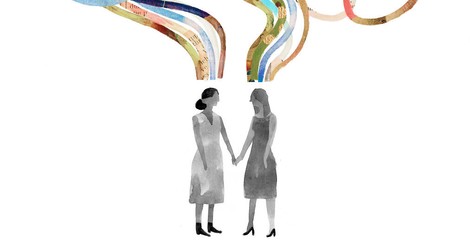Your podcast discovery platform
Curious minds select the most fascinating podcasts from around the world. Discover hand-piqd audio recommendations on your favorite topics.

piqer for: Health and Sanity Global finds
I was born in 1987 in Bucharest. I studied Psychology and Educational Sciences at the University of Bucharest. For two years I worked in a psychotherapy practice, dealing with gambling addicts. I'm an independent reporter, writing and doing video reportages mostly about social and political issues. I am currently based in Jena.
You Share Everything With Your Bestie. Even Brain Waves.
Friendship is increasingly garnering interest in the scientific world: Why and how do people become friends? What makes a friendship last over the years? What are the structures and rules of such a relationship? While these questions are still being explored, we do so far know a few things about what effects friendlessness can have on a person: the physical and emotional toll it takes is similar to that of obesity, high blood pressure, smoking, etc.
Scientists have already established that people tend to make friends with someone much like themselves, in terms of age, race, religion, socioeconomic status, education, and political views. But as new research shows, the brains of close friends respond in astonishingly similar ways when they are played short videos: “the same ebbs and swells of attention and distraction, the same peaking of reward processing here, boredom alerts there.”
Now, keep in mind that further research is still needed – scientists are preparing “to scan incoming students who don’t yet know one another and see whether those with the most congruent neural patterns end up becoming good friends”. But you have to admit that the findings could be a good explanation as to why you never became bffs with that girl who never liked Seinfeld.
